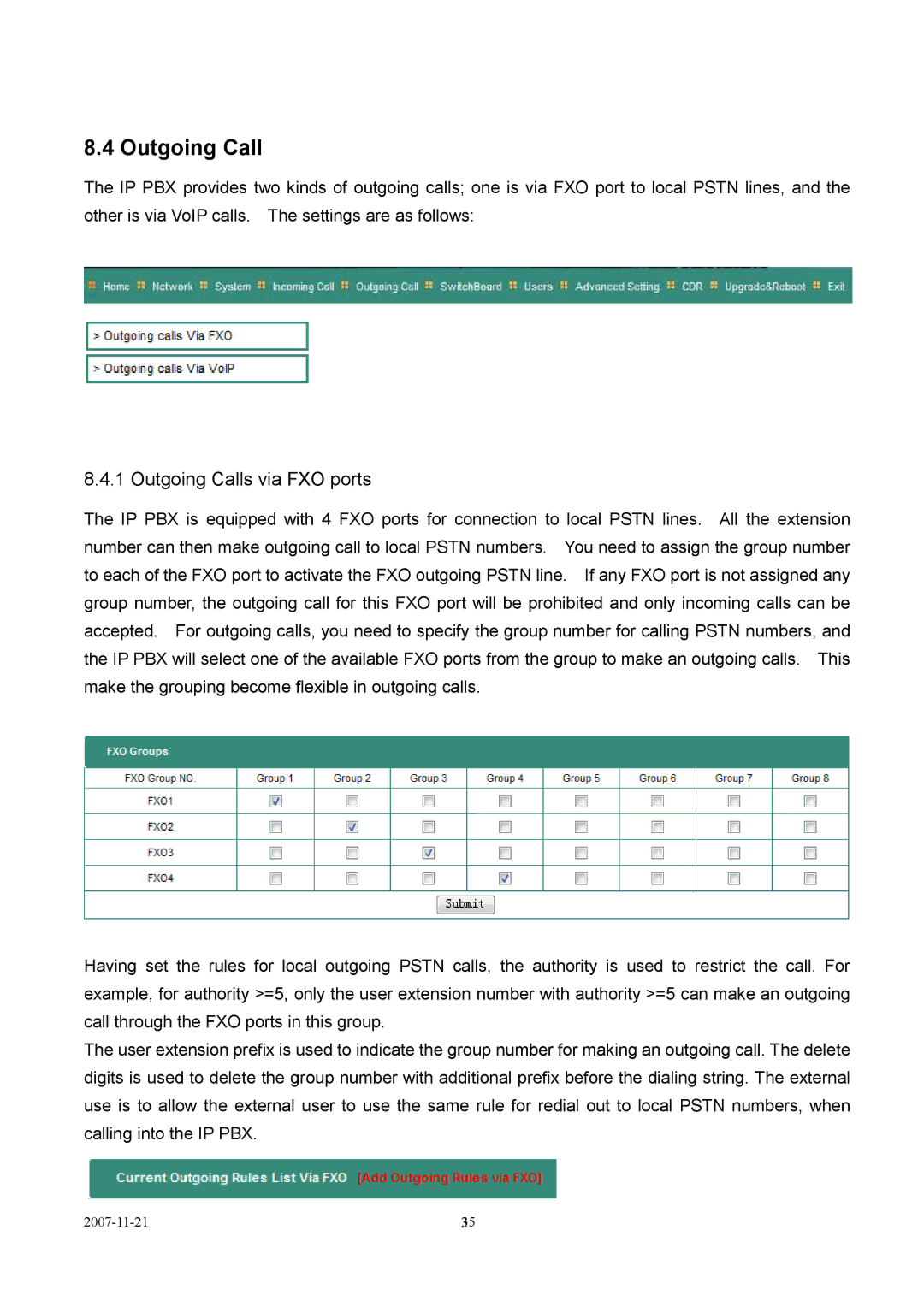
8.4 Outgoing Call
The IP PBX provides two kinds of outgoing calls; one is via FXO port to local PSTN lines, and the other is via VoIP calls. The settings are as follows:
8.4.1 Outgoing Calls via FXO ports
The IP PBX is equipped with 4 FXO ports for connection to local PSTN lines. All the extension number can then make outgoing call to local PSTN numbers. You need to assign the group number to each of the FXO port to activate the FXO outgoing PSTN line. If any FXO port is not assigned any group number, the outgoing call for this FXO port will be prohibited and only incoming calls can be accepted. For outgoing calls, you need to specify the group number for calling PSTN numbers, and the IP PBX will select one of the available FXO ports from the group to make an outgoing calls. This make the grouping become flexible in outgoing calls.
Having set the rules for local outgoing PSTN calls, the authority is used to restrict the call. For example, for authority >=5, only the user extension number with authority >=5 can make an outgoing call through the FXO ports in this group.
The user extension prefix is used to indicate the group number for making an outgoing call. The delete digits is used to delete the group number with additional prefix before the dialing string. The external use is to allow the external user to use the same rule for redial out to local PSTN numbers, when calling into the IP PBX.
| 35 |
